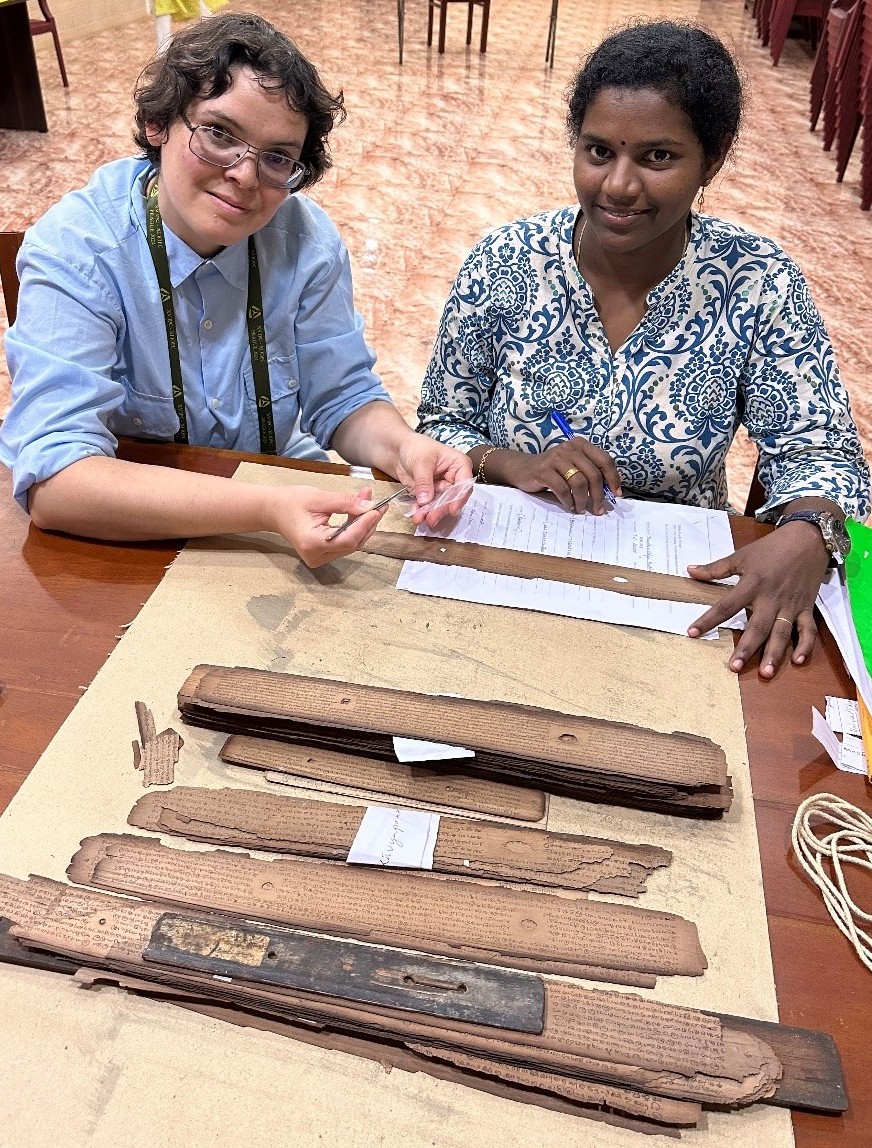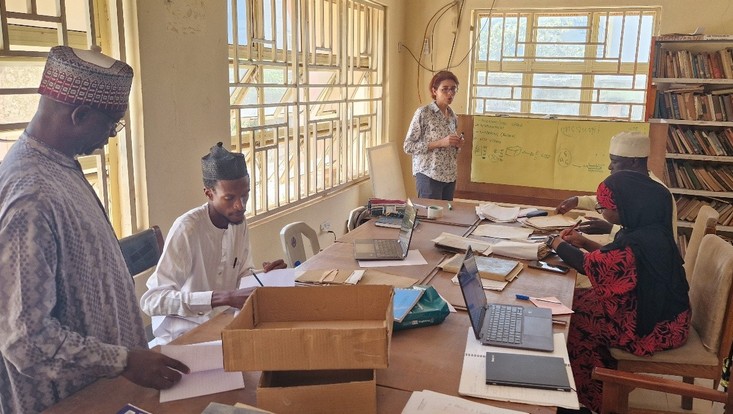DiPiKA and PLMPITwo CSMC Projects Cross Paths in Thrissur
26 September 2024
The CSMC is currently running projects in two Indian states, Kerala and Tamil Nadu, focusing on the preservation and study of historical palm-leaf manuscripts. During her trip to India, Anastasia Poliakova visited both and facilitated the exchange between these projects.

During the monsoon season, palaeoecologist and molecular biologist Anastasia Poliakova visited the Kerala Manuscript Preservation Centre (KMPC) in Thrissur, India, where the CSMC is currently implementing the Digitisation and Preservation of Kerala Archives (DiPiKA) project. Anastasia had originally come to India as part of another ongoing CSMC project, conducting fieldwork in South India for the Palm-Leaf Manuscript Profiling Initiative (PLMPI). During her stay, she visited Pondicherry, Thanjavur and Thrissur, where she met the DiPiKA team. One of the main aims of her visit was to collect samples for her palaeoecological and molecular analyses to determine the identity and origin of palm-leaf manuscripts.
At the KMPC, Anastasia and the DiPiKA team collected micro-samples of the palm-leaf manuscripts, which she will use in her further research. She also documented the techniques used to preserve the palm-leaf manuscripts, which were demonstrated at her request by the experienced staff of the KMPC. Anastasia had the opportunity to film and photograph the processes involved: cleaning, i.e. removing dust and fungi from the manuscript folios, oiling with lemongrass oil and inking the palm-leaf manuscripts. She spent a total of three days at the KMPC, during which the members of DiPiKA introduced her to the Centre's activities and, in turn, to the PLMPI initiative. The meeting resulted in a fruitful exchange of ideas and plans for future collaboration.
DiPiKA is a project to preserve the rich and highly endangered written cultural heritage of Kerala. It is collecting and digitising palm-leaf and paper manuscripts held in private collections across the state. The digitised collections will be fed into a digital repository, creating an online archive of Kerala's manuscripts that will be openly accessible.
PLMPI undertakes innovative and comprehensive studies of palm-leaf manuscripts from South and Southeast Asia (with a focus on South India). The research in this project will employ a variety of analytical methods, including DNA and molecular biomarker analysis, phytolith studies, spectroscopy, various types of microscopy, and others. The results will open up new avenues in the fields of philology, material codicology and palaeography, and will advance our understanding of both material and textual cultures in the study area.




